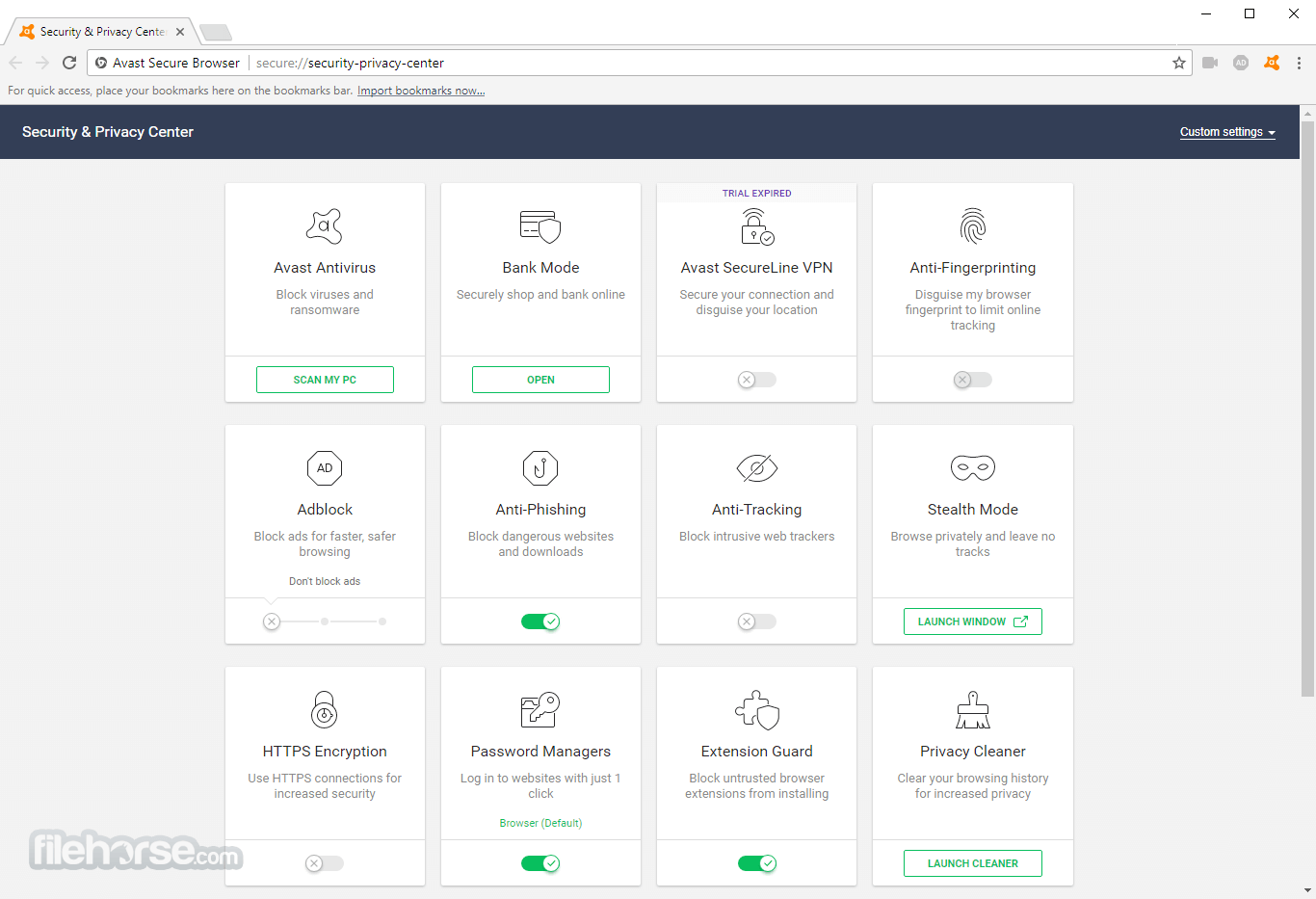
Over this weekend, Palant reported his findings to both the browser makers, Mozilla, and Google, of which Mozilla took immediate action by temporarily removing the extensions from its Firefox Add-on store within 24 hours until Avast resolves the issue. All that is connected to a number of attributes allowing Avast to recognize you reliably, even a unique user identifier," Palant said. "Tracking tab and window identifiers as well as your actions allows Avast to create a nearly precise reconstruction of your browsing behavior: how many tabs do you have open, what websites do you visit and when, how much time do you spend reading/watching the contents, what do you click there and when do you switch to another tab. The browser extensions of the AVs were installed and enabled, and the competing browsers were tested without an antivirus program running.

Avast browser extension phishing full#

The malicious behaviour of Avast and AVG extensions was discovered almost a month ago by Wladimir Palant, who detailed how the extensions are sending a large amount of data about users' browsing habits, listed below, to the company's servers - "far beyond what's necessary for the extension to function."
Avast browser extension phishing install#
Most of you might not even remember downloading and installing these extensions on your web browser, and that's likely because when users install Avast or AVG antivirus on their PCs, the software automatically installs their respective add-ons on the users' browsers.īoth online security extensions have been designed to warn users when they visit a malicious or phishing website whereas, SafePrice extensions help online shoppers learn about best offers, price comparisons, travel deals, and discount coupons from various sites.


 0 kommentar(er)
0 kommentar(er)
